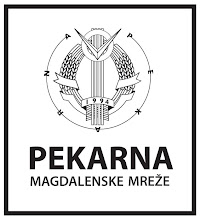Foto: Aljaž Bašin
In the beginning of November, I had opportunity to help with preparation of screening of the 4thRojava International Film Festival hosted by Iniciativa Mestni Zbor and PMM. Namely, Komîna Fîlm a Rojava is a grassroots institution that was established by local filmmakers and supporters of the revolution in 2015, with the aim of developing the cinema culture in Rojava. Despite the war, embargo and other hardships, they managed to organize the festival three years in row. Because Turkish invasion of Rojava, this year’s realization of the festival was not possible, therefore, supporters of Rojava, and Rojava IFF organized simultaneous screenings of the festival all over the world. Towns from Yugoslav sphere were particularly active in participation, beside Maribor, screenings occurred in Skopje, Belgrade, Podgorica, Novi Sad, Sarajevo, Zenica, Banja Luka, Pula, Zagreb and Ljubljana. The festival starts every year on 13thof November is memory of the massacre which occurred in Amude, a town in Rojava, where a cinema was burned down together with hundreds of children in 1960. After the screening, we had discussion about the self-organization and self-governance in Rojava, as well as complicity of NATO i.e.Slovenia in systematic destruction of life and freedom in Rojava.
Beside Rojava IFF, in the first part of November, together with my fellow volunteers Gilles and Lucas, and our coordinator Nataša, I participated in preliminary meeting with the hosts of intergenerational daily activity center “Društvo TOTI DCA” where we set grounds for the further collaboration with their organization where we are going to produce different workshops with/for them. Afterwards, I attended series of events (Z)GRADIMO organized by PMM where I learned about housing politics in Maribor, lack of regulations and involvement in general by the state and municipality officials, and interesting alternative ways how to counter these discrepancies, such as housing cooperatives.
November was particularly eventful month in Maribor, but I would like to pick out two more events which I have strong feelings about. First is theater play “Calais, Calais” (PMM, KUD Transforma and ZIZ) where protagonists attempt to illustrate hardships and despair of refugees, as well as struggles of activists who are trying to improve conditions where refugees are held in camp Calais (FRA). The theater show calls for rethinking of the borders, modern day migrations and other power relations underpinned with the capitalist, consumeristic logic. Second event is the exhibition of Igor Bošnjak “Projekt Utopija / Project Utopia” hosted by X-OP Association for Contemporary Art in ArtKIT. Artist reinterprets idea of the European continent as a place consumed by its institutional lethargy and historical-superiority issues. The artist simultaneously questions concepts of utopia and dystopia from various standpoints, with the emphasis on European geopolitics and migrations.
Foto: Bošjan Lah
Filip











No comments:
Post a Comment